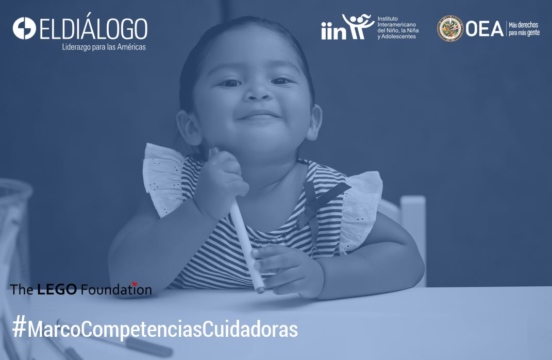This post is also available in:
Spanish
Did you know that Latin America has a regional network to measure child development?
Recently, an entry in Primeros Pasos blog talked about the impact that indicators that are comparable among countries in the region would have on the design and implementation of early childhood policies for early childhood development. In this line the Regional Agenda for the Integral Development of Early Childhood was developed, which resulted in its most concrete commitment in the creation of a Red Regional sobre Medición del Desarrollo Infantil (REMDI) (Regional Network to Measure Child Development. in English).
A clear step towards integration and evaluation
As the name suggests, REMDI is a regional network of specialists that promotes and facilitates current and future measurement efforts so that all Latin American countries can have national child development assessment mechanisms that are clear, technically sound and allow comparisons between countries and between population subgroups in a country.
REMDI will be made up of members of governments, academia, non-governmental organizations and international agencies, including specialists from the Inter-American Development Bank’s (IDB) child development team.
What does REMDI want to accomplish?
The overall objective of the Network is to promote a common approach in the region on the measurement of child development, which involves periodic and regular realization of national child development surveys. This will allow for quality population diagnoses to guide early childhood policies in the region.
In particular, they highlight the following goals:
- Facilitate access to survey information—population-based, longitudinal, for the evaluation of child development programs and services, among others—and child development measurement tools.
- Promote the exchange of lessons learned from ongoing efforts in different countries in the region.
- Promote the development and dissemination of common materials and schemes for both the measurement of child development and for the analysis and use of information.
- Develop technical assistance opportunities for countries that require it.
Course of action to accomplish these goals
- Knowledge management: advancing activities such as mapping what is being done in the area of measurement of child development measurement at the regional level and generating a repository of reports and instruments; as well as promoting the use of the surveys that currently exist in the region, encouraging the analysis and use of information. To this end, a competitive fund is expected to finance research using the databases of these surveys both for in-country and country-to-country comparisons.
- Systematization of lessons learned: promoting spaces for discussion on advances regarding child development measurement and generating working papers, which should be available to the community at large, systematizing what has been learned to date on different topics: advantages and disadvantages of the measuring instruments used, financing alternatives for this type of national surveys, strengths and weaknesses of different institutional arrangements, among others.
- Technical assistance on child development measurement: facilitate the technical assistance needed for countries to advance their measurement agenda, both for countries identifying child development measurement training needs, and for those interested in participating in exchanges with other countries in the region.
First things first
The government of Uruguay is currently serving as the secretariat of the Network, with the support of the Inter-American Dialogue. The REMDI Advisory Board is comprised of distinguished experts in child development from across the region.
As a first activity, a survey is being conducted to record needs and expectations regarding the Network, which expects to have the participation of experts and institutions with experience in the field to promote best practices. Initial results will be shared in 2020, in the frame of the Network’s first regional seminar.
In short, REMDI is an important joint effort whose impact will strengthen the design and implementation of policies focused on empowering children in Latin America and the Caribbean.
How do you think REMDI can benefit your country’s children? What elements do you think it should consider for best results? Tell us in the comments or mention @BIDgente and @PrealEd on Twitter.
This was a blog published in collaboration with the Inter-American Development Bank (IDB)
 Video
Video



















